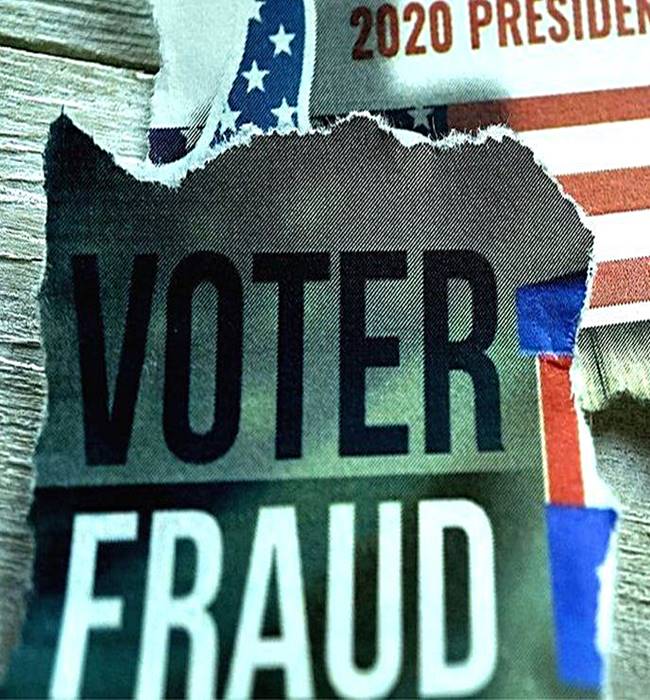Have you ever walked into a public building and was treated like a piece of shit? I have and I’m sure you have, know your rights, and have your cell phone charged and ready to film.
Colorado Springs to pay cameraman $41,000 after First Amendment audit of police
First Amendment audits are a largely American social movement that usually involves photographing or filming a public space. It is often categorized by its practitioners, known as auditors, as activism and citizen journalism that tests constitutional rights; in particular the right to photograph and video record in a public space. The movement promotes transparency and open government. Public employees work for the people!!! The people pay their salaries!!! This is something that a lot of public employees seem to not understand. The public has the right to know what their taxes dollars are being funded for.
“The camera is an objective witness that never lies”Amagansett Press
In some of these videos auditors film police stops and if I was stopped by the police I would welcome them filming it and the police should feel the same. In some of these videos, auditors offer advice to people getting stopped if you don’t know your rights it great having these auditors around. I personally think the camera keeps everyone honest.
“Your in public, you have to create privacy” Amagansett Press
Amagansett Press – Obi-Wan of Audits
Amagansett Press(YouTube Channel) and his son(Watching the Watchmen YouTube channel) team up and make some great audit videos. Amagansett Press shows the good and the bad, most auditors just show the bad. But I enjoy watching both and when I see a good municipal I look at it as a place I would want to visit or possibly live. I gave Amagansett Press the nickname Obi-Wan, the way he deescalates situations is a work of art.
Rights Crispy – The devil dog Auditor
“Honor your oath” Rice Crispy
Rights Crispy doesn’t take shit and won’t back down and has a great sense of humor. Also, a former Marine, took and upholds the oath he took for this incredible country. Hence the name The Devil Dog Auditor.
There are a lot of other channels doing the same thing and I’ll tell you that these videos are addicting, I ended up binge-watching them for days. You will see a lot of female and male Karens(Crazy people) in the videos getting triggered as Karens do, they don’t get that first amendment audit is in everyone’s best interest and that includes all public employees. All these auditors have big balls doing what they do and in my book they are heroes. Whoever does not use democratic rights risks losing them. Democratic rights are like muscles. You need to use them in order not to lose them.
“You’re a law enforcement officer, not a rules enforcement officer, we follow laws” Rice Crispy
Another thing you will notice while watching all these videos is some of these municipal buildings are amazing. It really makes you wonder about where all our tax dollars are being spent. Saltlake City, Utah has some pretty incredible public buildings.
“I have a bad memory and I suck at drawing” Rice Crispy
“Consider the audits as a reminder that we do serve the public, and in such, we should adjust our policing and our methods to suit the situation. We shouldn’t be carrying heavy stones over glass bridges as law enforcement.” Sergeant Ryan Brett
The famous case that gets quoted in all the videos:
SMITH v. CITY OF CUMMING
United States Court of Appeals, Eleventh Circuit.
James Soloman SMITH, Jr., Barbara Smith, Plaintiffs-Appellants, v. CITY OF CUMMING, a Municipal Corporation, Earl A. Singletary, et al., Defendants-Appellees.
No. 99-8199.
Decided: May 31, 2000
Summary: private citizens brought an action under 42 U.S. Code 1983 against a city and its police chief, alleging a violation of their right to videotape police actions. The district court found that plaintiffs had no constitutional right to videotape police actions in public.
Holding: a three-judge appellate panel disagreed with the trial court and found that the plaintiffs enjoyed a right, as private citizens, to videotape public police action. However, the court found that appellants failed to prove that the police conduct deprived them of a right, privilege or immunity secured by the Constitution or laws of the United States.
Before BIRCH and BARKETT, Circuit Judges, and ALARCON*, Senior Circuit Judge. Clifford Harold Hardwick, Hardwick & Associates, Roswell, GA, for Plaintiffs-Appellants. Kimberly Houston Ridley, Debra E. LeVorse, Freeman & Hawkins, Thomas G. Tidwell, Hawkins & Parnell, Atlanta, GA, for Defendants-Appellees.
James and Barbara Smith filed suit against the City of Cumming, Georgia (the “City”), and its police chief, Earl Singletary, pursuant to 42 U.S.C. § 1983, alleging that the City police had harassed the Smiths, including a claim that Mr. Smith had been prevented from videotaping police actions in violation of Smith’s First Amendment rights. They appeal from summary judgment granted to the City and Singletary and from the denial of the Smiths’ motion to amend their complaint so as to name another City police chief, Ralph “Buck” Jones,1 as a defendant in the place of a defendant originally identified as “John Doe.” We affirm.
As to the First Amendment claim under Section 1983, we agree with the Smiths that they had a First Amendment right, subject to reasonable time, manner and place restrictions, to photograph or videotape police conduct. The First Amendment protects the right to gather information about what public officials do on public property, and specifically, a right to record matters of public interest. See Blackston v. Alabama, 30 F.3d 117, 120 (11th Cir.1994) (finding that plaintiffs’ interest in filming public meetings is protected by the First Amendment); Fordyce v. City of Seattle, 55 F.3d 436, 439 (9th Cir.1995) (recognizing a “First Amendment right to film matters of public interest”); Iacobucci v. Boulter, No. CIV.A. 94-10531, 1997 WL 258494 (D.Mass, Mar. 26, 1997) (unpublished opinion) (finding that an independent reporter has a protected right under the First Amendment and state law to videotape public meetings); see also United States v. Hastings, 695 F.2d 1278, 1281 (11th Cir.1983) (finding that the press generally has no right to information superior to that of the general public) (citing Nixon v. Warner Communications, Inc., 435 U.S. 589, 609, 98 S.Ct. 1306, 55 L.Ed.2d 570 (1978)); Lambert v. Polk County, 723 F.Supp. 128, 133 (S.D.Iowa 1989) (“[I]t is not just news organizations ․ who have First Amendment rights to make and display videotapes of events․”); Thompson v. City of Clio, 765 F.Supp. 1066, 1070-71 (M.D.Ala.1991) (finding that city council’s ban on member’s attempt to record proceedings regulated conduct protected by the First Amendment); cf. Williamson v. Mills, 65 F.3d 155 (11th Cir.1995) (reversing district court’s grant of qualified immunity to a law enforcement officer who seized the film of and arrested a participant in a demonstration for photographing undercover officers). Thus, the district court erred in concluding that there was no First Amendment right.
Nonetheless, under Section 1983, the Smiths must prove that the conduct complained of deprived them of “a right, privilege or immunity secured by the constitution or laws of the United States.” Nail v. Community Action Agency of Calhoun County, 805 F.2d 1500, 1501 (11th Cir.1986). Although the Smiths have a right to videotape police activities, they have not shown that the Defendants’ actions violated that right. We find no merit in the remaining arguments presented in this appeal. AFFIRMED.










